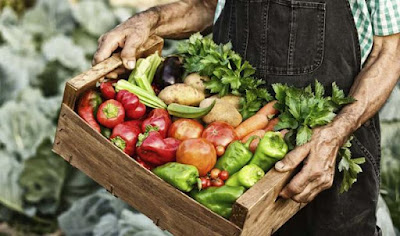Le delizie del Piemonte - part 2
I spent a good portion of the rest of my holidays going out to local osterias, where I had a chance to refresh my memory of what is available around Torino.
One of the things I had forgotten is how common it is to find meats that are sometimes very hard hard to find elsewhere: roe deer, boar (real boar, not "wildened" hogs like here in California), guinea fowls, hare, chamois, donkey, rabbit or horse. Yes, horse, do not cringe my friend, it is relatively common to eat them in Italy.
Another thing that I noticed is how few ingredients are needed sometimes to make the most exquisite and flavorful recipes. And how the same ingredients sometimes taste so much better, being grown under the sun, with little or no use of pesticide or petrochemical fertilizers, with no need to boast how everything is organic on the menu, when that is the norm.
Well... at least until recently. Unfortunately industrial agricultural methods have been creeping into Italian farms too. There are more McDonald's in Torino than in San Francisco for example. Some crops are discarded in favor of a bigger, uniformed, more resistant or more productive ones, sometimes genetically modified, drenched in chemicals and often almost obliterating the production of some others. Farro for example, nowadays is hard to find even in Tuscany. I remember going to visit some small farms a couple of years ago during Christmastime. To be able to survive and to maintain their traditional, healthy ways of growing their food, they had to convert their business. It is called Agritourism. Basically they make a touristic attraction of their own life, work and food preparation. Their big country homes become charming guesthouses and the visitors can enjoy an idillic landscape and maybe even try to help on the farm, or simply hike, relax and enjoy delicious meals.
Have you ever heard of Slow Food? It is a movement born as a reaction of the spreading of industria1989 by Carlo Petrini, and counting over 100.000 active members in 132 countries, the Slow Food movements acts to promote education and preservation of local traditions and recipes, ecodiversity and social justice. "Slow Food brings together pleasure and responsibility, and makes them inseparable".
l food production (represented easily by fast foods), who serve overprocessed food, sometimes containing toxic, unregulated compounds and, willingly or unknowingly, promoting social injustices and environmental degradation. Founded in
Why do I bring this up? Because there are a few restaurants here in the Bay Area that belong to the Slow Food movement (notoriously, Alice Waters' "Chez Panisse"). And because Torino hosts the first Slow Food center in the world, a hybrid between a food retailer, a series of restaurants and a cooking school, called Eataly. I have been there a few times before and every time it is great fun. This time I brought my parents for a steak, but the highlight of the day was definitely the fountain of molten Gianduia Chocolate. At the first taste I melted like a smiling block of butter.
l food production (represented easily by fast foods), who serve overprocessed food, sometimes containing toxic, unregulated compounds and, willingly or unknowingly, promoting social injustices and environmental degradation. Founded in
Why do I bring this up? Because there are a few restaurants here in the Bay Area that belong to the Slow Food movement (notoriously, Alice Waters' "Chez Panisse"). And because Torino hosts the first Slow Food center in the world, a hybrid between a food retailer, a series of restaurants and a cooking school, called Eataly. I have been there a few times before and every time it is great fun. This time I brought my parents for a steak, but the highlight of the day was definitely the fountain of molten Gianduia Chocolate. At the first taste I melted like a smiling block of butter.



Comments